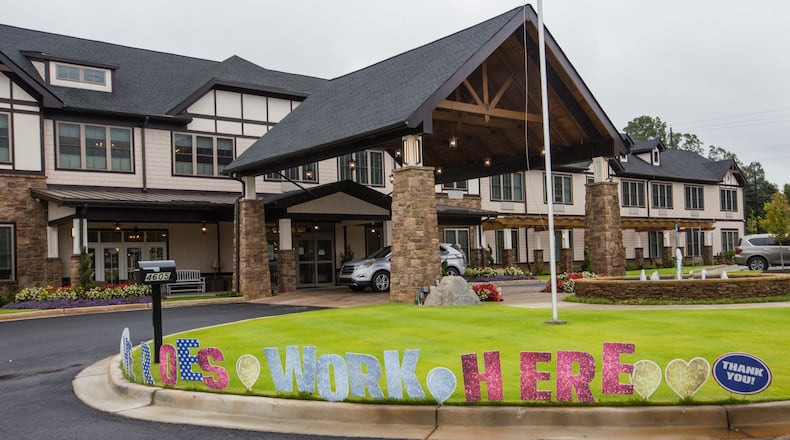For nearly three hours, Georgian after Georgian shared heartbreaking and often tearful stories about how difficult it has been for them to be separated from loved ones who are in nursing homes or other long-term care facilities due to the COVID-19 pandemic.
Others spoke about the greater potential to spread the disease if restrictions on visits to those facilities were eased.
They were there Wednesday to talk about House Bill 290, legislation filed by Acworth Republican state Rep. Ed Setzler with bipartisan support, that would prevent hospitals and nursing homes from obtaining or renewing a license to operate if they put a policy in place to keep visitors away from patients during a “declared public health emergency,” like the current one for the COVID-19 pandemic.
Karina Yakimovich told a state House committee that since the pandemic began, she’s been unable to touch her 95-year-old mother, who is in a nursing home in Evans being treated for dementia and other illnesses. The Acworth resident said her mother’s health has deteriorated since the pandemic began.
“My mother is being forced into this isolation and this separation from her family,” Yakimovich said. “She should not be treated as a prisoner. She’s committed no crime here, and she is on borrowed time.”
But Tim Kibler, a lobbyist with the Georgia Alliance of Community Hospitals, said the legislation could put people at risk of either getting sick or getting vulnerable Georgians sick.
“Every person who steps on the campus at the hospital heightens the risk of bringing infection into the hospital and spreading the contagion to people who don’t currently have it,” he said. “It is our fear that unless we really thread a needle here, the result will be more families that will suffer and more tragedies.”
Setzler, chairman of the House Science and Technology Committee, told the panel considering the legislation that visits from close family members and friends are more than just socializing, that they are “essential caregivers” who contribute to the health and well-being of those who are sick. His bill would define an essential caregiver as someone who is 18 or older and has an established relationship with the patient.
The legislation — which would take effect July 1 if it passes — wouldn’t supersede an emergency order from the governor, but it would require the governor to explicitly state that visitation was not allowed.
When the pandemic reached Georgia in March, hospitals and nursing homes began to deny visitation at their facilities. Gov. Brian Kemp in September eased guidelines, banning visitation only in health care facilities with COVID-19 cases or in counties with high infection rates.
Anna Adams, a lobbyist with the Georgia Hospital Association, said she understood the benefits of having loved ones visit sick family members, and she said facilities were doing all they could to allow visitors when it was safe and practical. But even though they require visitors to use masks, get their temperature checked and be tested for COVID-19, they don’t always have full compliance — much like several who attended the committee hearing on Wednesday.
“There is a mask requirement that was put in place by the speaker of this House, and yet, there are attendees and speakers who are at this meeting who are not masked,” she said.
HB 290 would allow at least two family members or friends to visit patients for no less than two hours each day. Facilities would set necessary health guidelines that visitors would have to follow, such as requiring personal protective equipment.
The bill would also prevent anyone from suing a health care facility if he or she got sick or was harmed because the hospital or nursing home allowed patients to receive visitors.
“Our current legal status quo allows health care providers to say, ‘No, you can’t come in,’ ” Setlzer said. “I think that violates people’s dignity. I hesitate to use the word ‘right,’ but I think it approaches a right to be able to have contact with a loved one.”
The committee did not take action on HB 290.
About the Author
Keep Reading
The Latest
Featured



